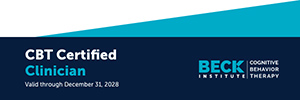Do you feel trapped by the weight of past trauma, unsure how to move forward? Complex trauma and PTSD can leave deep emotional scars, but healing is possible. This article explores effective Cognitive Behavioral Therapy (CBT) approaches for treating complex trauma and PTSD. You’ll learn about recognizing symptoms, finding the right therapist, and building support systems. By understanding these evidence-based treatments, you can take meaningful steps toward long-term healing and reclaim your sense of safety and wellbeing.
Key Takeaways
- Complex PTSD differs from traditional PTSD in its duration and impact on core self
- CBT plays a crucial role in treating complex trauma and PTSD
- Finding a trauma-informed therapist is essential for effective healing
- Building a strong support network enhances recovery from complex trauma and PTSD
- Setting realistic goals and embracing life post-trauma are important for long-term healing
Understanding Complex Trauma and PTSD
Complex trauma and PTSD can profoundly impact your emotions, cognition, and overall well-being. Understanding these conditions is crucial for effective treatment. We’ll explore the definition of Complex PTSD, its effects on youth and adults, and how it differs from traditional PTSD. This knowledge forms the foundation for successful CBT approaches and support, as informed by my work as a CBT therapist in Port Jefferson, NY.
Defining Complex PTSD and Its Effects
Complex PTSD (C-PTSD) develops from prolonged exposure to traumatic events, often beginning in childhood. Unlike traditional PTSD, C-PTSD affects your core sense of self and ability to regulate emotions. This condition can disrupt your stress management skills and impact your relationships.
C-PTSD symptoms often include difficulty with emotional regulation, negative self-perception, and problems in interpersonal relationships. You might struggle with addiction as a coping mechanism or experience challenges in maintaining a stable sense of identity. These effects can persist into adulthood, influencing various aspects of your life.
Effective treatment for C-PTSD typically involves a comprehensive approach that addresses both past trauma and current symptoms. Cognitive Behavioral Therapy (CBT) can help you develop healthier coping strategies and improve emotional regulation. This process may include techniques to manage stress, address negative thought patterns, and rebuild a more positive self-account.
How Complex Trauma Differs From Traditional PTSD
Complex trauma differs from traditional PTSD in its duration and impact on your core self. While PTSD often results from a single traumatic event, complex trauma stems from prolonged exposure to multiple traumatic experiences. This ongoing trauma can significantly alter your self-perception, relationships, and ability to manage emotions, including grief.
Unlike traditional PTSD, complex trauma often involves a wider range of symptoms that can be more severe and pervasive. You might struggle with intense phobias, suicidal ideation, or difficulties in social interactions. These challenges can complicate your recovery process and require specialized therapeutic approaches, such as trauma-informed CBT.
The treatment for complex trauma typically requires a more comprehensive and long-term approach compared to traditional PTSD. Your therapy may involve addressing deep-rooted beliefs about yourself and the world, rebuilding a sense of safety, and developing healthier coping mechanisms. This process often integrates various therapeutic modalities to address the multifaceted nature of complex trauma.
Recognizing Symptoms of Complex Trauma
Recognizing complex trauma symptoms is crucial for effective treatment. Understanding core symptoms and emotional responses helps identify the condition accurately. Fear and stress play significant roles in how complex trauma affects your daily life and relationships.
Identifying Core Symptoms of Complex PTSD
Complex PTSD often stems from prolonged exposure to trauma, such as experiences in foster care or situations involving violence and abuse. You may notice persistent feelings of shame, guilt, or worthlessness that impact your self-perception and relationships. These core symptoms can manifest as difficulty trusting others or maintaining healthy boundaries and relationships.
Your ability to manage emotions and regulate them might be significantly affected, leading to intense mood swings or outbursts that feel beyond your control. This dysregulation can sometimes result in risky behaviors, including drug use as a coping mechanism. Understanding these patterns is crucial for recognizing Complex PTSD and seeking appropriate support.
Physical symptoms often accompany Complex PTSD, reflecting the impact of chronic stress on your body and brain, particularly the amygdala. You might experience heightened startle responses, chronic pain, or sleep disturbances. Recognizing these physical manifestations alongside emotional and behavioral symptoms can help you and your therapist develop a comprehensive treatment plan tailored to your specific needs.
Understanding Emotional and Behavioral Responses
Complex trauma can trigger a range of emotional responses, including intense panic and fear reactions. You might experience sudden mood shifts or find yourself struggling with emotional regulation. Research published on PubMed highlights the importance of distinguishing these responses from other mental health disorders for accurate diagnosis and treatment.
After experiencing complex trauma, a person’s behavior often reflects practical strategies they’ve learned to cope with their emotional distress. You may engage in avoidance behaviors, struggle with interpersonal relationships, or develop unhealthy habits to manage overwhelming emotions. In cases of childhood neglect, these behaviors can become deeply ingrained, affecting your adult life and relationships.
Understanding these emotional and behavioral responses is crucial for effective therapy. In states like California, trauma-informed care approaches recognize the unique challenges faced by individuals with complex PTSD. Your therapist will work with you to identify and address these responses, helping you develop healthier coping strategies and improve your overall quality of life.
The Role of Cognitive Behavioral Therapy in Treatment
Cognitive Behavioral Therapy (CBT) plays a crucial role in treating complex trauma and PTSD. This therapy approach focuses on key principles to address your trauma-related symptoms. You’ll learn specific CBT techniques tailored for complex PTSD, helping you manage sadness and insomnia. Your therapist will customize CBT to meet your individual needs as a patient, ensuring effective treatment throughout your healing journey.
Key Principles of CBT for Trauma
CBT for trauma focuses on addressing your thoughts, feelings, and behaviors related to traumatic experiences. You’ll learn to identify and challenge negative thought patterns that contribute to your symptoms. This process helps you develop more balanced perspectives and reduce the intensity of your emotional responses, including anger, for example.
A key principle of CBT is exposure therapy, which systematically helps you confront trauma-related memories and situations in a safe environment. This technique, supported by systematic reviews, allows you to process traumatic experiences and reduce avoidant and fear based behaviors. Your therapist may incorporate art therapy as a complementary approach to help express and process difficult feelings.
CBT also emphasizes developing coping skills to manage trauma-related symptoms. You’ll learn techniques for emotion regulation, stress management, and relaxation. These evidence-based strategies help you handle intense feelings and improve your overall well-being. Your therapist will tailor these techniques to your specific needs and preferences:
| CBT Principle | Purpose | Technique Example |
|---|---|---|
| Cognitive Restructuring | Address negative thought patterns | Thought records |
| Exposure Therapy | Process traumatic memories | Imaginal exposure |
| Skill Development | Manage symptoms | Mindfulness exercises |
CBT Techniques Specifically for Complex PTSD
You’ll work with your therapist to process traumatic memories, using techniques that help rewire your brain’s response to triggers. This approach aims to build your confidence in managing symptoms and navigating daily life.
Memory processing is a crucial component of CBT for Complex PTSD. You’ll learn strategies to organize and integrate fragmented traumatic memories, reducing their emotional impact. These techniques help you gain control over triggers, intrusive thoughts and flashbacks, improving your overall mental well-being.
For those in relationships, couples therapy can be integrated into your CBT treatment plan. This approach helps address how Complex PTSD affects your interactions and supports both partners in understanding and managing symptoms. Your therapist will guide you through exercises designed to improve communication and rebuild trust:
| CBT Technique | Focus Area | Benefit |
|---|---|---|
| Gender-responsive interventions | Trauma processing | Tailored coping strategies |
| Memory reconsolidation | Cognitive restructuring | Reduced emotional distress |
| Couples-based exercises | Relationship dynamics | Improved communication |
Tailoring CBT for Individual Needs
Your CBT treatment plan will be tailored to address your specific experiences and needs. Your therapist will gather information about your trauma history, current symptoms, and personal goals to customize the approach. This individualized strategy ensures that you receive targeted support for your unique challenges, including addressing feelings of shame or managing the effects of antidepressants if prescribed by your physician.
CBT techniques will be adapted to suit your learning style and comfort level. You might find that certain methods resonate more with your mind, such as visual aids or written exercises. Your therapist will work with you to identify the most effective tools for processing your trauma and developing coping strategies. This tailored approach helps maximize the benefits of therapy and supports your healing journey.
Throughout your CBT sessions, your progress will be regularly assessed and the treatment plan adjusted as needed. This flexibility allows for addressing new concerns or shifting focus as you heal. Your therapist will collaborate with you to ensure the therapy remains aligned with your evolving needs and goals:
- Initial assessment of trauma history and symptoms
- Customization of CBT techniques to your learning style
- Regular progress evaluations and treatment adjustments
- Collaboration between you and your therapist for optimal results
Finding the Right CBT Therapist for Trauma
Finding the right CBT therapist for trauma is crucial for effective healing. You’ll learn what to look for in a trauma-informed therapist. Discover key questions to ask during your first session and understand how to build a strong therapeutic alliance, which is essential for your recovery.
What to Look for in a Trauma-Informed Therapist
When seeking a trauma-informed therapist, look for someone with specific training in complex trauma and PTSD. Your therapist should have a solid understanding of how trauma affects mood, behavior, overall well-being and quality of life. Check for citations of their expertise in trauma treatment, such as certifications, specialized training, and publications in reputable journals.
A qualified trauma-informed therapist tends to prioritize patient safety and comfort. They should be able to explain their approach to trauma treatment, including how they use CBT techniques to address your unique needs. Ask about their experience with specific trauma types.
Consider the therapist’s approach to holistic care. A well-rounded trauma-informed therapist will discuss how trauma affects various aspects of your life and may offer complementary treatments to enhance your therapy. Look for someone who can provide or coordinate additional support services if needed:
| Therapist Qualities | Importance | Impact on Treatment |
|---|---|---|
| Trauma-specific training | Essential | Ensures appropriate treatment approach |
| Clinic environment | High | Promotes safety and comfort |
| Holistic care perspective | Valuable | Addresses all aspects of well-being |
Questions to Ask During Your First Session
During your first session, ask about the therapist’s experience treating complex trauma and PTSD, particularly in Long Island if that’s your location. Inquire about their approach to CBT and how they incorporate scientific evidence into their practice. This information will help you understand their expertise and treatment methods.
Discuss the therapist’s strategies for developing coping skills and improving overall health. Ask how they integrate in vivo exposure techniques into therapy, as these can be crucial for addressing trauma-related avoidance. Understanding their approach to these aspects of treatment will give you insight into how they can support your healing journey.
Inquire about the therapist’s methods for tracking progress and adjusting treatment plans. Ask about their experience with specific trauma types relevant to your situation. This conversation will help you gauge their flexibility and ability to tailor CBT to your unique needs:
- Experience with complex trauma and PTSD
- Evidence-based CBT approaches
- Strategies for coping and health improvement
- Use of in vivo exposure techniques
- Methods for tracking progress
- Experience with specific trauma types
Building a Therapeutic Alliance for Healing
Building a therapeutic alliance is crucial for your healing journey. As a health professional, your therapist will focus on understanding your unique experiences with trauma, including any history of aggression or assault. This understanding forms the foundation of a strong, trusting relationship that supports your recovery process.
Your therapist will work with you to create a safe environment where you feel comfortable expressing yourself. This may involve discussing how trauma has affected your physical health, including muscle tension or other somatic symptoms. Together, you’ll develop strategies to address both the emotional and physical aspects of your trauma:
- Establishing trust and safety in the therapeutic relationship
- Addressing both emotional and physical trauma symptoms
- Developing personalized coping strategies
- Setting collaborative goals for your healing journey
As you progress in therapy, your therapist will adapt their approach to meet your changing needs. This flexibility ensures that you receive the most effective support throughout your healing process. Remember, building a strong therapeutic alliance takes time and open communication, but it’s a vital component of successful CBT for complex trauma and PTSD.
Support Systems and Resources for Healing
Support systems and resources play a crucial role in your healing journey from complex trauma and PTSD. You’ll learn about building effective support networks, accessing online and community resources, and incorporating self-help strategies alongside professional support. These tools can aid in managing symptoms, including body dysmorphic disorder, through techniques like progressive muscle relaxation. We’ll explore resources for learning about intimate partner violence and other trauma-related issues.
Importance of Support Networks
Building a strong support network is crucial for your recovery from complex trauma and PTSD. As you work with your clinician in Long Island or through email consultations, having supportive friends and family can significantly enhance your healing process. These connections provide emotional stability and practical help, especially when dealing with challenges like alcohol or drug use.
Your support network can offer valuable perspectives and coping strategies that complement your CBT treatment. Trusted individuals can help you practice new skills learned in therapy, reinforcing positive changes in your daily life. This collaborative approach strengthens your resilience and aids in managing trauma-related symptoms more effectively.
Engaging with support groups or peer networks specific to trauma survivors can provide additional understanding and validation. These connections allow you to share experiences with others who have faced similar challenges, fostering a sense of community and reducing feelings of isolation. Remember, building and maintaining these support systems is an ongoing process that contributes significantly to your long-term healing and well-being.
Online and Community Resources
As you search for a trauma therapist in Port Jefferson, NY, online resources can be invaluable. Many therapists now offer virtual consultations, allowing you to connect with experts in childhood trauma treatment from the comfort of your home. These online platforms often provide detailed information about therapists’ specialties, making it easier to find someone who aligns with your needs.
Community resources play a crucial role in supporting your healing journey. Local support groups for trauma survivors can offer a sense of connection and understanding. These groups often address various aspects of recovery, including the impact of trauma on marriage and relationships. You can usually find information about these groups through your therapist’s email address or local mental health organizations.
When exploring online and community resources, be mindful of marketing tactics that may promise quick fixes. Reputable resources will focus on evidence-based approaches and long-term healing. Look for platforms that provide educational content about trauma recovery, offer secure ways to connect with professionals, and emphasize the importance of personalized treatment plans.
Self-Help Strategies Alongside Professional Support
Incorporating self-help strategies alongside professional support can enhance your healing journey from complex trauma and PTSD. As a caregiver for yourself, you can practice mindfulness techniques to improve sleep quality and manage stress. These strategies complement your CBT sessions, increasing the overall efficacy of your treatment.
Engaging with your community through support groups or volunteer work can provide a sense of purpose and connection. This involvement helps build your support network and expands your knowledge about trauma recovery. Remember to balance these activities with self-care to avoid overwhelm.
Educating yourself about complex trauma and PTSD can empower you in your healing process. Seek out reputable resources recommended by your therapist to gain a deeper understanding of your experiences. This knowledge can help you collaborate more effectively with your therapist and make informed decisions about your treatment plan.
Long-Term Healing and Growth After Complex Trauma
Your long-term healing journey after complex trauma involves setting realistic recovery goals and embracing life post-trauma. Through CBT and support networks, you’ll develop resilience and transform your narrative. This process may incorporate innovative approaches like virtual reality therapy. Stories of others who’ve overcome similar challenges can inspire your growth, showing how policy changes and internet resources contribute to healing.
Setting Realistic Goals for Recovery
Setting realistic goals for your recovery from complex trauma is crucial, especially if you’ve experienced domestic violence. Start by identifying small, achievable steps that align with your overall healing journey. Your therapist can help you develop language that supports positive self-talk and reframes negative thoughts, a key component of CBT recommended by the National Institute for Health and Care Excellence.
As you progress, address specific symptoms like irritability through targeted goals. Your therapist might suggest desensitization techniques to help manage triggers. Remember, healing is not linear, and it’s okay to adjust your goals as you navigate your recovery. Focus on progress rather than perfection, celebrating small victories along the way.
Incorporate both short-term and long-term goals into your recovery plan. Short-term goals might include practicing a new coping skill daily, while long-term goals could involve rebuilding relationships or pursuing career aspirations. Regular check-ins with your therapist will help ensure your goals remain realistic and aligned with your evolving needs throughout the healing process.
Embracing Life Post-Trauma
Embracing life post-trauma involves recognizing and addressing compulsive behaviors that may have developed as coping mechanisms. Your therapist can provide resources, such as PDF guides, to help you understand and manage these behaviors effectively. Through CBT techniques, you’ll learn to identify triggers and develop healthier responses, gradually reclaiming control over your actions and emotions.
Many insurance providers now cover trauma-focused therapies, making it easier to access the support you need. Discuss insurance options with your therapist to ensure you can maintain consistent care throughout your recovery process.
For survivors of sexual abuse, embracing life post-trauma often involves reclaiming your sense of safety and trust. Your therapist will work with you to develop strategies for setting boundaries and rebuilding relationships. Remember, healing is a personal journey, and it’s okay to progress at your own pace. Focus on small, achievable goals that align with your vision of a fulfilling life beyond trauma.
Stories of Resilience and Transformation
Stories of resilience and transformation showcase the power of cognitive restructuring in overcoming complex trauma. You’ll find inspiration in accounts of patients who, through CBT treatments, challenged long-held negative beliefs about themselves and their experiences. These narratives highlight how confronting distorted thoughts can lead to profound healing and personal growth.
Many survivors describe the transformative impact of persisting through initial setbacks, ultimately finding therapists who provided the right support. These stories underscore the importance of advocating for your mental health needs within the healthcare system.
Embrace the accounts of individuals who, like you, faced seemingly insurmountable trauma but emerged stronger. Their experiences often reveal how integrating CBT techniques into daily life fosters resilience and facilitates lasting change. These stories can offer you hope and practical insights as you work towards your own healing milestones.
Frequently Asked Questions
How does complex trauma differ from single-incident PTSD?
Complex trauma results from prolonged or repeated exposure to traumatic events, often during childhood. Unlike single-incident PTSD, it affects multiple areas of functioning, including emotional regulation, self-perception, and interpersonal relationships. The ongoing nature of complex trauma can lead to more pervasive and deeply ingrained symptoms. Single-incident PTSD typically stems from a specific traumatic event, such as a car accident or natural disaster. While still impactful, its effects are usually more focused on that particular incident. Complex trauma, however, can shape a person’s core beliefs and behaviors, requiring a more comprehensive and long-term approach to treatment.
What are the common symptoms of complex trauma?
Complex trauma often manifests through emotional dysregulation, difficulty forming and maintaining relationships, and a persistent sense of disconnection from oneself and others. You might experience intense mood swings, chronic feelings of emptiness, or struggle with trust and intimacy in your personal and professional life. Physical symptoms can include chronic pain, sleep disturbances, and heightened stress responses. You may find yourself easily startled, constantly on edge, or struggling with unexplained physical ailments. Many individuals also report difficulties with memory, concentration, and decision-making, impacting their daily functioning and overall quality of life.
How effective is CBT in treating complex trauma and PTSD?
Cognitive Behavioral Therapy (CBT) has shown significant effectiveness in treating complex trauma and PTSD. By addressing the thoughts, emotions, and behaviors associated with traumatic experiences, CBT helps individuals process their trauma and develop healthier coping mechanisms. This approach often leads to reduced symptoms and improved overall functioning. Research indicates that CBT, particularly when tailored for trauma, can be as effective as other evidence-based treatments for PTSD. It’s especially beneficial in helping clients challenge negative thought patterns, manage anxiety or emotional distress, and gradually face trauma-related triggers. However, the effectiveness can vary depending on individual factors and the specific nature of the trauma experienced.
What qualities should I look for in a CBT therapist for trauma?
When seeking a CBT therapist for trauma, look for someone with specialized training in trauma-informed care and experience treating complex PTSD. A qualified therapist should have certifications in evidence-based trauma treatments like EMDR or CPT, and demonstrate a deep understanding of how trauma impacts the brain and body. Equally important are the therapist’s interpersonal qualities. Seek someone who creates a safe, non-judgmental environment and approaches trauma work with patience and compassion. The therapist should be willing to collaborate on treatment goals, respect your boundaries, and adjust the pace of therapy to match your comfort level.
What resources are available for ongoing support during trauma recovery?
Trauma recovery often requires ongoing support beyond therapy sessions. Many find healing through support groups, where they can connect with others who’ve had similar experiences. Books, workbooks, and online resources focused on trauma recovery can also provide valuable tools and insights for continued growth. Self-care practices like mindfulness, journaling, and body-based techniques (yoga, tai chi) can be powerful aids in managing trauma symptoms. Some individuals benefit from medication under a psychiatrist’s care. Remember, recovery is a journey, and it’s okay to explore different resources to find what works best for you.
Conclusion
Healing from complex trauma and PTSD is a transformative journey that requires personalized, evidence-based approaches like Cognitive Behavioral Therapy (CBT). By understanding the unique impacts of complex trauma, recognizing symptoms, and finding the right trauma-informed therapist, you can embark on a path to recovery that addresses both emotional and physical aspects of your experiences. Building a strong therapeutic alliance, utilizing support networks, and incorporating self-help strategies alongside professional treatment are crucial components of long-term healing and growth. Through setting realistic goals, embracing life post-trauma, and drawing inspiration from stories of resilience, you can overcome the challenges of complex trauma and PTSD, reclaiming your sense of self and creating a fulfilling life beyond your past experiences.tr









